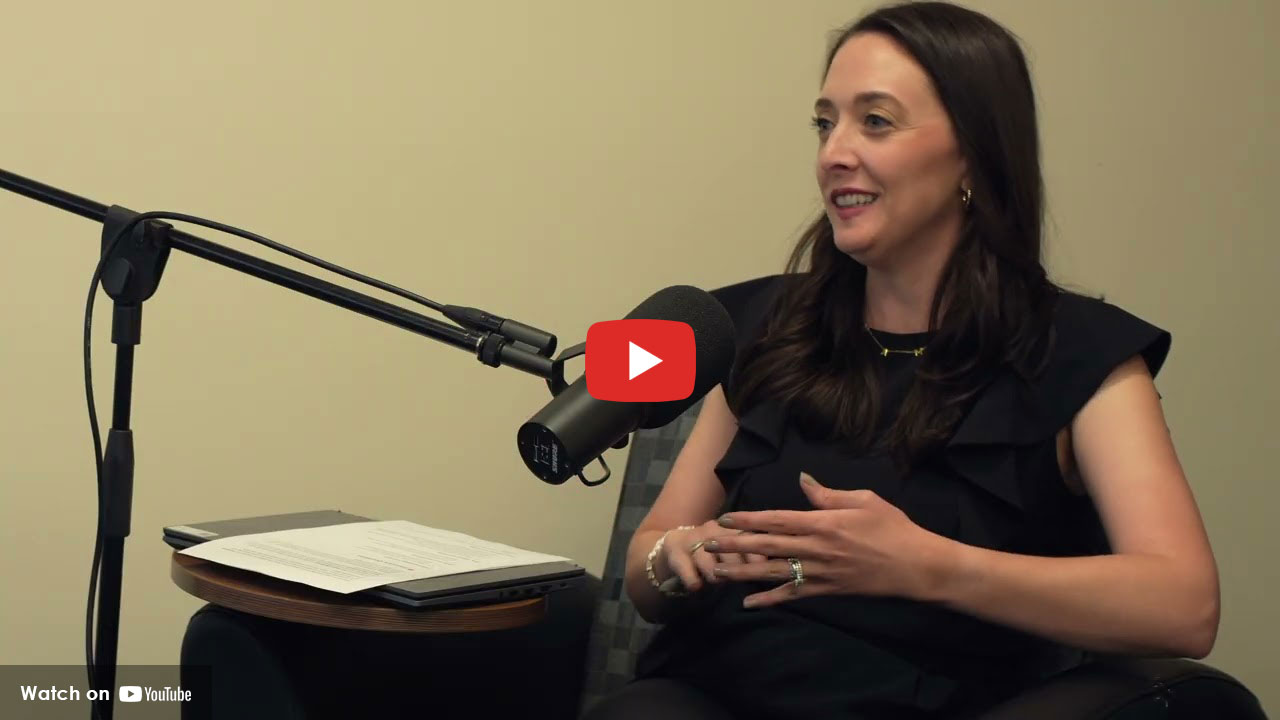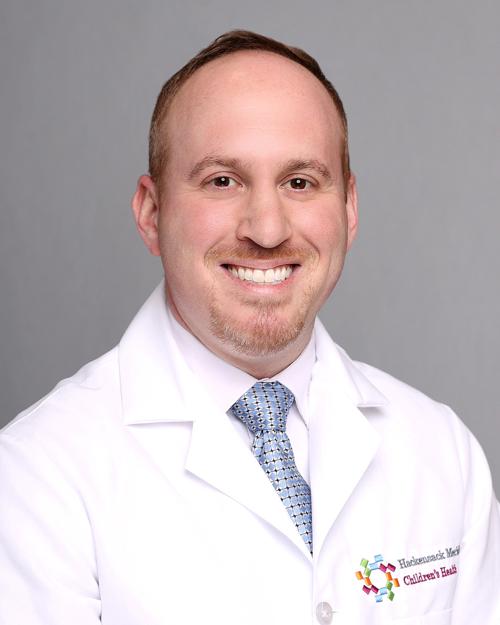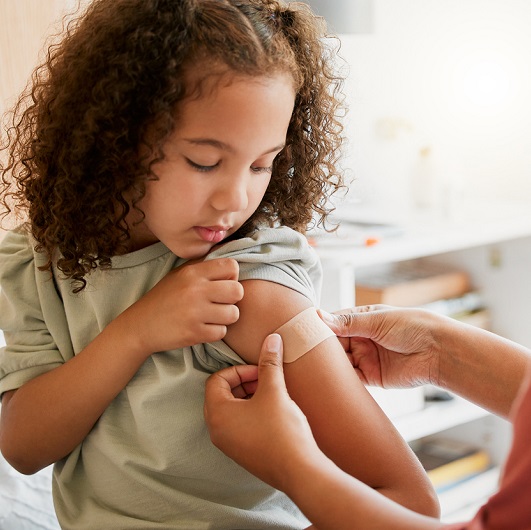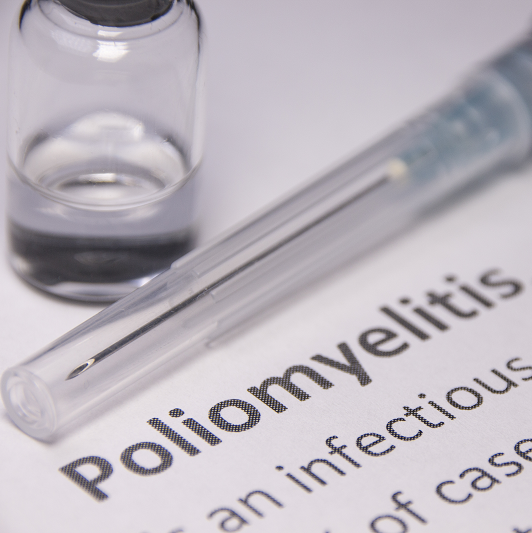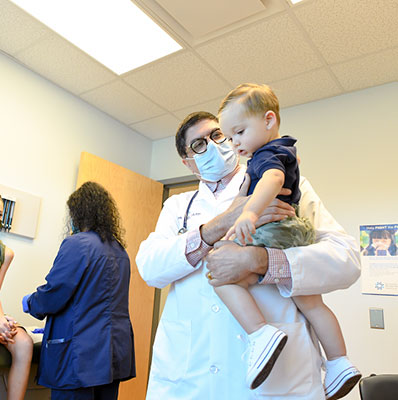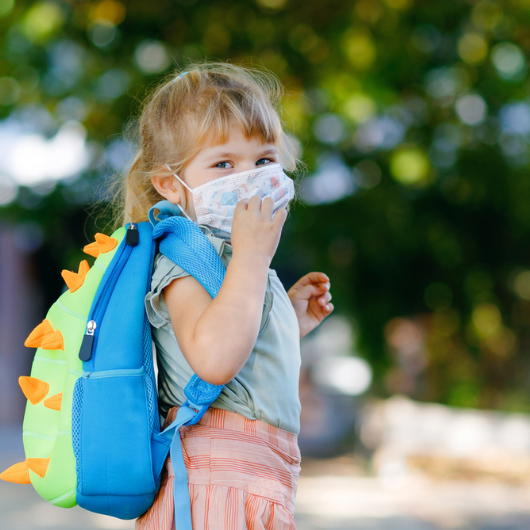Natural Immunity vs. Vaccines: Protecting Your Child

July 08, 2025
Picture this: It's 1985, your best friend has chickenpox, and instead of avoiding them, you're encouraged to play together. The goal? Catch the chickenpox and develop "natural immunity." But is natural immunity really better than the protection offered by vaccines?
Breaking it down, we asked Daniel Ruderfer, M.D., chief of the Division of Pediatric Infectious Diseases at K. Hovnanian Children’s Hospital, and Moses F. Olorunnisola, M.D., a pediatrician with Hackensack Meridian Medical Group in Forked River, to explain why vaccines remain the safest and most effective way to protect children from preventable diseases.
Antibodies: The Key to Your Immunity
Antibodies are special proteins produced by your immune system. Think of them as tiny, highly trained guards patrolling your body. Their job is to identify and neutralize harmful invaders like viruses and bacteria. Each antibody is designed to recognize a specific enemy, like a lock and key.
- Recognizing a threat. When your body encounters a germ, it triggers the production of antibodies that match that specific germ.
- Launching the attack. These antibodies attach to the invader, marking it for destruction by other parts of the immune system.
- Immune memory. This process helps your body fight off the infection and also creates a "memory" of the germ. If you encounter the same germ again in the future, your body can quickly produce antibodies to prevent you from getting sick. This is how immunity develops.
Getting Sick vs. Getting Vaccinated
Many parents wonder if natural immunity is better than vaccine-acquired immunity. It's a valid question, and understanding the differences is crucial for making informed decisions about your child's health.
- Getting sick: Your child has to suffer through the disease to build immunity. Some infections can be very dangerous, resulting in hospitalization or, even in rare cases, death.
- Getting vaccinated: You get immunity without getting really sick.
In both scenarios, getting sick or vaccinated, your child’s body will develop antibodies and immunity. However, vaccines are generally safer and more reliable. They give you strong protection without the risk of getting sick and possibly having serious complications.
Dr. Olorunnisola explains, “if you’re exposed to measles and get sick, you really have to suffer to make those antibodies, and we as doctors and parents don’t want you to suffer.”
Before the chickenpox vaccine, some parents believed it was better for their children to get chickenpox early in life, assuming it would be milder than getting it as an adult. They would sometimes organize "chickenpox parties" to deliberately expose their children to the virus. However, even childhood chickenpox can be dangerous, and this practice is no longer recommended.
- Chickenpox mostly affects kids. Over 90 percent of people who get it are children.
- Kids also make up most of the people who need to go to the hospital for chickenpox (70 percent), and sadly, about half of the people who die from it are children, too.
When you're thinking about vaccines, remember to ask: "Are these infections safe for my child?" Also consider: "Does natural infection provide better immunity than a vaccine?" In most cases, vaccines offer safer and more reliable protection.
The Success of Vaccines & The Rise of Hesitancy
It's understandable why some parents are hesitant about vaccines. There's a lot of confusing information out there, especially online. Another big reason is that we don't see these diseases very often anymore in the U.S. Because vaccines have worked so well, it's easy to forget how dangerous these illnesses can be.
Out of sight, out of mind?
Dr. Olorunnisola explains, "The reason we see vaccine hesitancy here in the U.S. is because we aren’t seeing the diseases." Dr. Olorunnisola, himself, grew up in a country where vaccines weren't always available. "I’ve seen those diseases — I’ve seen people with polio, including family members, some who died or had permanent paralysis." Because we have a polio vaccine, younger generations in the U.S. have never seen this devastating disease.
Dr. Ruderfer remembers his own pediatrician, who had polio and walked with a limp. "I was terrified because… I knew I didn’t want to get it," he says. His dad would tell him stories about people lining up for blocks, waiting all day to get the polio vaccine. Back then, people didn't need social media to tell them polio was scary; they knew firsthand.
Measles: A comeback story (that nobody wants)
- Before the measles vaccine in the 1960s, millions of kids in the U.S. got measles every year. It caused serious problems like pneumonia, hearing loss, brain damage and even death.
- Because of vaccines, measles was almost completely gone from the U.S. But it's starting to come back because fewer kids are getting vaccinated.
Because we don't see these diseases much anymore, it's easy to forget how serious they are. But vaccines are the reason we don't see them! They're a safe and effective way to protect kids from dangerous illnesses.
Vaccines vs. Diseases: Weighing the Risks
It's important to understand the real risks of diseases and the risks of vaccines. While vaccines can have side effects, the risks of getting the diseases they prevent are much greater.
Here's a look at the risks of three childhood diseases compared to the risks of their vaccines:
Flu
"We’ve just seen the highest flu pediatric death rate in over 15 years," says Dr. Ruderfer. “The kids I unfortunately see in the hospital who are intubated, needing respiratory support — they are almost never vaccinated,” says Dr. Ruderfer.
- As of early June 2025, 225 children had died during the 2024 to 2025 flu season.
- One likely reason is that the percentage of children who receive the flu vaccine has been decreasing. It is currently down to 49 percent from around 64 percent before the COVID-19 pandemic.
The risk of developing serious complications from a flu vaccine, on the other hand, is extremely low.
Measles
Imagine 10,000 kids get the measles. Here are the risks:
- Over 2,000 kids would end up in the hospital. That’s more than one out of every five kids.
- 1,000 would get painful ear infections, and some could even lose their hearing.
- 500 would get pneumonia.
- Around 10 would have their brains swell.
- And sadly, between 10 and 30 kids could even die.
Now, picture 10,000 children get the MMR vaccine.
- Of the 10,000, only about three may have a fever-related seizure. These are usually short and don’t cause lasting harm.
- Very rarely, the odds are less than one in 10,000, that they would potentially have a blood clotting problem or an allergic reaction.
Dr. Olorunnisola reminds us that measles can be serious, especially for younger kids. He says the MMR vaccine has been used safely for almost 55 years.
Polio
Now let’s think about polio – a disease that could paralyze children. Here’s the difference between getting polio and getting the vaccine:
- Meningitis: Up to 5 out of 100 patients would get meningitis, a dangerous infection in the brain and spinal cord.
- Paralysis: About 1 out of every 200 kids with polio would become paralyzed, meaning they couldn't move their legs or arms.
- Post-polio syndrome: Even if they recovered, up to 40 out of 100 survivors could have muscle weakness and tiredness years later.
Polio (Vaccine):
- The polio vaccine used in the U.S. is super safe. The biggest risk is a serious allergic reaction, which is extremely rare (about 1 in a million). Doctors can treat allergic reactions quickly, which is why they might ask you to wait a little while after getting the shot.
The Bottom Line
While there are very small risks associated with vaccines, the potential effects of getting these diseases are much more serious. Vaccines are a safe and effective way to protect children from dangerous illnesses.
Next Steps & Resources
- Meet our sources: Daniel Ruderfer, M.D., and Moses F. Olorunnisola, M.D.
- To make an appointment and discuss vaccines with a pediatrician near you, call 800-822-8905 or visit our website.
- Learn more about Hackensack Meridian Children’s Health.
- Explore more on parent vaccine decision making.
- Watch our podcast on Navigating the Noise on Pediatric Vaccines.
The material provided through HealthU is intended to be used as general information only and should not replace the advice of your physician. Always consult your physician for individual care.

